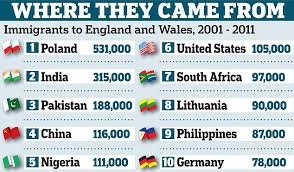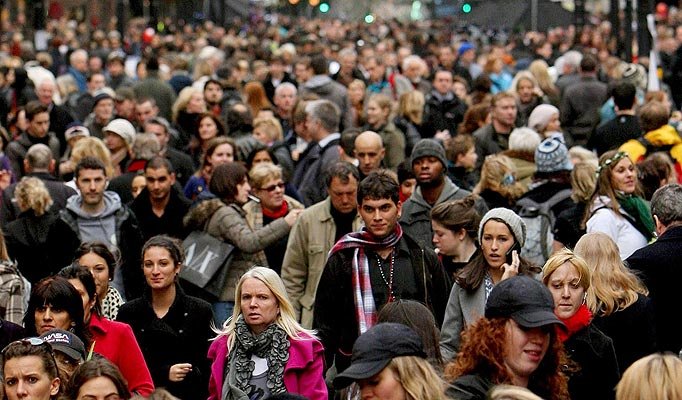Migrants enrich national identity
 It was politically courageous of David Cameron, in the middle of an election campaign where controlling immigration was a key issue, to order the Royal Navy into action alongside the Italians and others to rescue migrants attempting to cross the Mediterranean from Africa to Europe. He overruled both his Foreign and Home Secretaries, Philip Hammond and Theresa May, who had stood by their view that the prospect of such rescue was a “pull factor” encouraging more to risk the perilous crossing.
It was politically courageous of David Cameron, in the middle of an election campaign where controlling immigration was a key issue, to order the Royal Navy into action alongside the Italians and others to rescue migrants attempting to cross the Mediterranean from Africa to Europe. He overruled both his Foreign and Home Secretaries, Philip Hammond and Theresa May, who had stood by their view that the prospect of such rescue was a “pull factor” encouraging more to risk the perilous crossing.
Both ministers have, however, rejected proposals from the European Union to spread the responsibility for settling migrants fairly across the continent, hence also in Britain, instead of them being concentrated in the country of first arrival. The Home Secretary again referred to this as a “pull factor” likely to increase the flow, and called for measures to return those who were not genuine asylum seekers, merely “economic migrants”, to their countries of origin against their will if necessary. This pitiless approach based on dubious logic is in conflict with her humanitarian reputation gained by her forthright support for measures to combat people trafficking in other contexts.
Britain can be more generous than that. As the Catholic community in Britain can bear witness, the stark distinction between an asylum seeker and an economic migrant is untenable. That community contains several million British people who have at least one ancestor who fled from Ireland in the nineteenth century, driven into exile by oppression, poverty and hunger. The immediate driver was the potato blight, aggravated by economic collapse. The Irish potato famine could hardly be regarded as an act of persecution, such as under modern international law would justify a plea for asylum. Yet the heartlessness of the Victorian British Establishment added greatly to Irish woes and may have contained a large dose of racial and religious bigotry. Economic and political factors are almost impossible to separate.
What Irish immigration to Britain had in common with other migrant flows, such as that of Jews from Eastern Europe and Russia before the First World War, was the extreme difficulty of acceptance and integration at first, contrasted, after a generation or two, by the fading of ethnic differences. Education had everything to do with it. Whatever their family origins, English Jews and English Catholics have become just as English as they are Jewish or Catholic. Something similar may be said in Wales and Scotland. It is not difficult to see the same happening with later post-Second World War migrations to Britain, and every reason to think it will happen to those who have settled more recently from other parts of the EU. Along with migration from Africa, the DNA of British Catholicism is seeing one of its periodic renewals.
 In every case the majority culture, while appearing to have asserted its dominance, has itself been subtly altered and enriched. In every field, from sport to the media, politics to the arts, law to medicine, science to military service, Catholics are present, pulling their weight, their religious allegiance, confident but often undeclared, flavouring the mix. The contemporary narrative about migrants is that they are a problem to be solved. In this anniversary edition of The Tablet it is appropriate to celebrate their achievements and to mark this gradual and subtle blending of identities, for that is what The Tablet has been about these last 175 years. This uniquely British contribution to the enrichment of the universal Church has surely earned it a moment of thanksgiving
In every case the majority culture, while appearing to have asserted its dominance, has itself been subtly altered and enriched. In every field, from sport to the media, politics to the arts, law to medicine, science to military service, Catholics are present, pulling their weight, their religious allegiance, confident but often undeclared, flavouring the mix. The contemporary narrative about migrants is that they are a problem to be solved. In this anniversary edition of The Tablet it is appropriate to celebrate their achievements and to mark this gradual and subtle blending of identities, for that is what The Tablet has been about these last 175 years. This uniquely British contribution to the enrichment of the universal Church has surely earned it a moment of thanksgiving


 Votes : 0
Votes : 0









